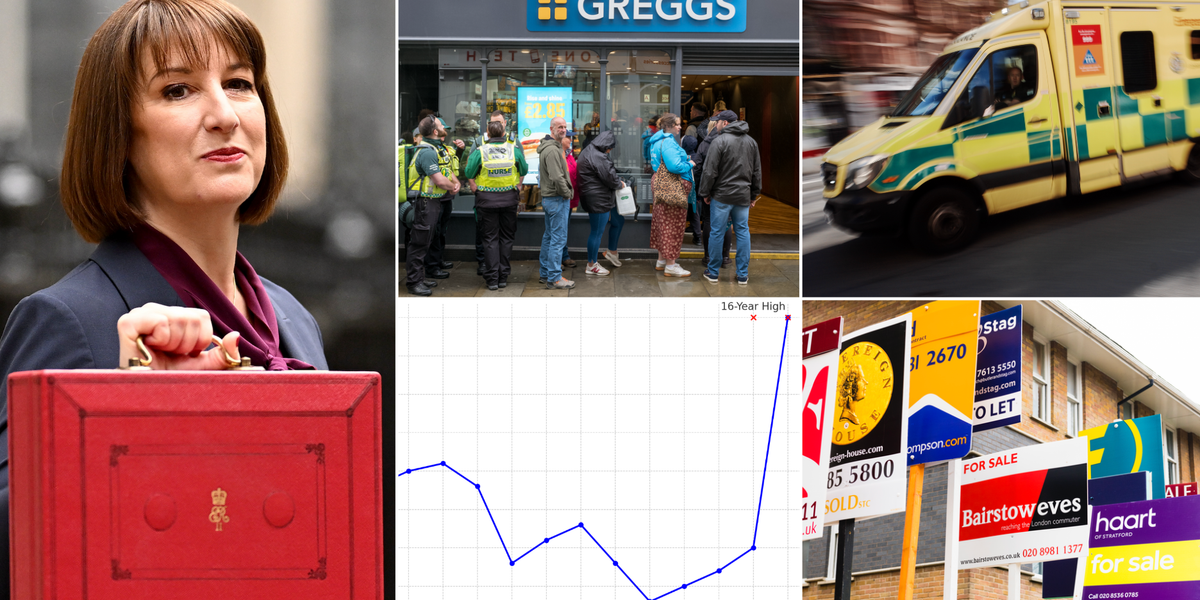Downing Street is preparing billions of pounds worth of cuts to disability benefits in an attempt to calm markets over its economic plan, The Telegraph can reveal.
No 10 and Treasury figures think significant reductions are needed in the welfare budget, including to personal independence payments (PIP).
The annual cost of support payments for people with disabilities and health conditions is forecast to soar from £22 billion to £35 billion by 2029 – a 60 per cent increase.
It comes as Rachel Reeves, the Chancellor, is under mounting pressure to prove to the markets that she can hit her borrowing rules as the cost of government debt rises.

Ms Reeves is said to have made clear to the Treasury that she wants to get “tough” on spending – meaning cuts in unprotected departments – rather than considering new tax rises.
Government officials are exploring tightening the rules around what proof is needed to get disability payments and alternatives to the weekly cash handouts.
The move risks triggering a backlash from the Left and disability campaigners who fiercely criticised the Conservatives when they announced a similar overhaul of PIP last year.
A senior government source said welfare reforms would show Labour was the “party of work”.
However, one Whitehall insider expressed concerns over the Treasury’s “slash slash slash” agenda.
Friday saw another day of market turmoil, prompting further financial woes for the Government, with the interest rate on 30-year government bonds hitting its highest level since 1998.
Jack Meaning, Barclays Bank’s UK chief economist, said the soaring borrowing costs meant there was a “high chance” the Chancellor would be forced to announce emergency spending cuts this spring.
Ms Reeves remains in China holding talks with her counterparts, defying calls from the Conservatives, the Liberal Democrats and Reform to cancel the trip and return to Westminster to deal with market movements.
Ms Reeves defended the trip on Friday, saying: “Growing the economy and raising living standards is front and centre of this government’s Plan for Change. That growth must be secure, resilient, and built on stable foundations, including through careful pragmatic cooperation with international partners.
“By finding common ground on trade and investment while being candid about our differences and upholding national security as the first duty of this government, we can build a long-term economic relationship with China that works in the national interest.”
A Treasury spokesman said Ms Reeves would challenge Beijing on its “material and economic support” for Russia’s “illegal” war in Ukraine, as well as over constraints on freedoms in Hong Kong.
It comes as the interest rate which markets are effectively demanding for long-term UK government debt has increased, meaning the Treasury must spend more on debt interest payments.
‘Fiscal headroom’ wiped out
The increases have called into question whether Ms Reeves can deliver on her promise to pay for day-to-day spending with taxation and not borrowing.
Economists warned that market movements had effectively wiped out the £10 billion “fiscal headroom” which Ms Reeves had left to make sure she hit that promise. It was less than past chancellors usually kept behind as a buffer.
The changes, combined with economic growth forecasts weakening and inflation dropping less quickly than hoped, have led the Treasury to put renewed focus on cuts in public spending.
A spending review, set to conclude in June, will reveal the budget for each government department for the years ahead. The welfare budget is being targeted for significant cuts.
Personal independence payments, which can be up to £9,600 a year, are designed to cover the extra costs incurred by people with disabilities and other health issues.
But since their introduction in 2013, the number of people using them has surged, with mental health and anxiety issues increasingly cited.
In 2019, before Covid struck, around 2,200 new payments a month were being made to people with anxiety or depressive orders. That more than doubled to 5,300 new payments in 2023.
Under his premiership, Rishi Sunak made reform of the PIP system a cornerstone of his welfare reforms. A consultation was issued on possible changes.
The Telegraph understands that Labour ministers in the Department for Work and Pensions (DWP) are continuing some of the work, looking at their own reforms to PIP.
The original Tory consultation, which the Labour Government must now respond to, offered specifics about how the benefit could be scaled back.
One involved being more specific about the type of mental health condition that could warrant the payments. Another looked at asking for greater medical evidence before approval. A third area was replacing some payments with non-cash benefits.
Liz Kendall, the Work and Pensions Secretary, has rejected the idea of swapping the money for vouchers but other options are available.
Cuts to the soaring welfare bill are being sought by senior figures in No 10, which is keen to counter Reform’s popularity, and the Treasury, which needs to find sizeable savings.
‘Full-on assault’ on the disabled
But there could be pushback from Left-wing Labour figures who have long championed the need for financial payments to those most in need, as well as disability charities.
Scope, the disability charity, accused Mr Sunak of a “full-on assault on disabled people”.
Ms Kendall promised to end the “blame” culture shortly after taking up her role last summer.
A DWP spokesman said: “We don’t comment on speculation. We have been clear that the current benefits system needs reform so it is fairer on the taxpayer and people get the support they need to move into work.
“Building on our Get Britain Working White Paper, we will bring forward proposals for reforming the health and disability benefits system in the Spring.
“This will be part of a proper plan to help disabled people who can work secure employment while ensuring support is provided for those who need it.”











